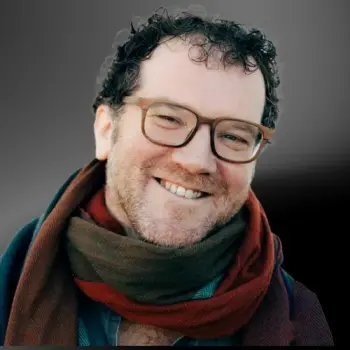According to data gathered by the Pension Fund for the Episcopal Church, in 2002 there were 13,616 clergy. Of those, thirty were under the age of 30, 195 were under the age of 35, and 399 were under the age of 40. Today, the average age at ordination is 44 and the average age of active Episcopal clergy is 54.
The age demographics in the pew are no better. In 1965, the Episcopal Church had 3.6 million members and Episcopalians constituted 1.9 percent of the U.S. population. Since 1965, however, membership has declined precipitously. The net result is a graying church.
The average Episcopalian is 57 years old.If that benchmark does not change, roughly half of the church's membership will die in the next eighteen years. And that is as good as it gets. Since 60 percent of Episcopal congregations have a membership of 100 or less,the rate of decline will probably pick up speed.
As important as my tradition is to me, I would never argue that the fate of The Episcopal Church and the Church are one in the same. But we are the canary in the Protestant mineshaft—along with the Disciples, UCC, and Presbyterian Church, USA. When we finally fall off the perch, blue with exhaustion, the rest of mainline Protestantism might want to take note. The undertaker is coming.
There are countless reasons for mainline malaise, many of which have been discussed at length:
- The steady diet of church conflict
- The use of theology as a surrogate for politics
- The effort to appeal to everyone at the expense of something compelling enough to attract anyone
The list is fairly long and the content of it varies. But one of the realities that doesn't head the list often enough is this:
The stork doesn't bring babies and it doesn't bring a new generation of Christians either. But we don't act as if it is blindingly obvious. Case in point: youth and campus ministry.
We can fine tune the church, address some of the other causes of mainline malaise, but if we don't nurture a younger generation in the faith, they aren't coming and the stork won't bring them. There are brilliant exceptions, of course, vibrant youth ministries, effective campus pastors, and a very short list of programs that educate and form youth leaders, but on balance the statistics across mainline Protestantism clearly indicate that we are failing to form a new generation of leaders—lay and clergy alike.
Here are some of the things that need to change and change now. I am betting there are those who have worked long and hard at it who have their own—and quite probably—better ideas:
One, we need to stop using youth and campus ministry as a place where we "park" people until they grow up to be "real ministers."
No one would admit it in public and no one would put it in print, but we have all heard the counsel, "Sure, you are doing some really nice work here, but you need to become a senior pastor or rector." The language is patronizing, debilitating, and aimed squarely at the heart of one of the few ministries that may save the mainline church.
Youth and campus ministry need to be treated as a vocation and destination and not as heavy lifting done by someone young enough to survive a week at camp with a hundred kids. That means paying youth ministers as if they do something critical. That means cultivating an approach to the vocation that makes it possible to continue doing the work as long as they feel called to do it. And it means eliminating structures that suggest that this is something worth doing only as long as you are young, unattached, and willing to eat pizza.
Two, we need to train and hire a savvy cohort of people to shoulder the task.
Some churches are lucky enough to have a program that is training a new generation of youth and campus ministers. But far too often bishops and churches are "parking" people in those jobs because they "don't know what to do with them," or because they were the closest thing to a demographic look-alike they could find. When that doesn't work, churches often recruit the parents in their midst on the thin rationale that the only difference between parenting and youth ministry is much like the difference in basketball between one-on-one and zone defense.
Parents and others might help, but campus and youth ministry require leaders who understand the special challenges faced by adolescents and young adults; the developmental and social changes they experience; and the complex business of forming souls at that age. Youth and campus ministry is a delicate balance of two essential characteristics: the ability to connect with young adults without being co-opted by them; and the ability to lead them, without bullying them. The result is a complex mix of skills and formation that cannot be acquired easily and should not be squandered.





